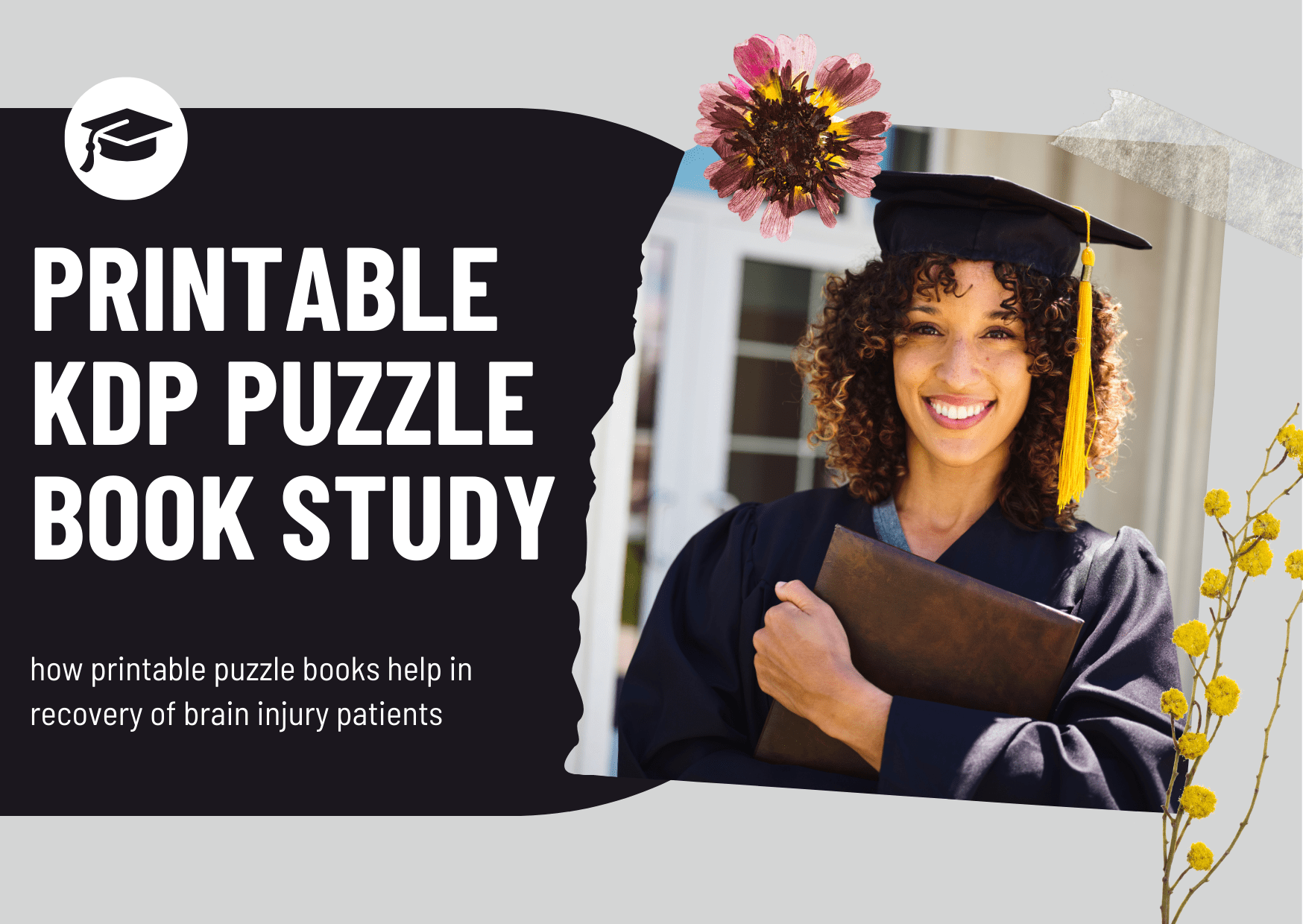Cognitive Rehabilitation Through PDF Puzzle Books: A Comprehensive Study on Brain Injury Patients
This is a how to article by Saffron

Abstract: This scientific study investigates the potential therapeutic effects of engaging in PDF puzzle books on individuals recovering from brain injuries. The aim is to understand how such activities contribute to cognitive rehabilitation and whether they can be integrated into standard neurorehabilitation programs.
Introduction: Brain injuries often lead to cognitive impairments, affecting memory, attention, and problem-solving skills. Traditional rehabilitation methods primarily focus on physical recovery, leaving a gap in cognitive rehabilitation strategies. This study explores the impact of playing PDF puzzle books as a supplementary intervention.
Methods:
- Participant Selection:
- A cohort of 50 participants with varying degrees of brain injuries was recruited.
- Participants were divided into experimental and control groups.
- Intervention:
- The experimental group engaged in daily sessions of solving PDF puzzle books tailored to their cognitive abilities and preferences.
- The control group received standard neurorehabilitation without puzzle book involvement.
- Assessment Tools:
- Cognitive assessments were conducted at baseline, mid-intervention, and post-intervention.
- Standardized neuropsychological tests were employed to measure memory, attention, and executive functions.
- Puzzle Book Selection:
- Various types of puzzle books, including crosswords, sudoku, and logic puzzles, were curated to provide a diverse cognitive challenge.
Results:
- Cognitive Improvement:
- The experimental group exhibited statistically significant improvements in memory recall, attention span, and problem-solving abilities compared to the control group.
- Neuroplasticity Indicators:
- Functional MRI scans indicated increased activity in brain regions associated with memory and executive functions in the experimental group.
- Emotional Well-being:
- Participants engaging in PDF puzzle books reported a higher sense of accomplishment, reduced frustration, and enhanced motivation during rehabilitation sessions.
- Adherence and Enjoyment:
- High adherence rates were observed in the experimental group, suggesting that puzzle book activities were enjoyable and engaging for brain injury patients.
Discussion: The findings suggest that incorporating PDF puzzle books into neurorehabilitation programs can contribute positively to cognitive recovery in brain injury patients. The cognitive challenges provided by puzzle books stimulate neuroplasticity, potentially facilitating the reorganization of neural networks.
Conclusion: This study provides valuable insights into the benefits of integrating PDF puzzle books into cognitive rehabilitation programs for brain injury patients. The positive outcomes observed in cognitive functions and emotional well-being underscore the potential of this low-cost, accessible intervention in enhancing the overall recovery process.
Limitations and Future Directions: While this study offers promising results, further research with larger sample sizes and long-term follow-ups is needed. Additionally, investigating the specific types of puzzle books that yield maximum cognitive benefits and tailoring interventions based on individual cognitive profiles could be explored in future studies.
Acknowledgments: express gratitude to all participants who contributed to this study, as well as the healthcare professionals who assisted in the research process.
Brain injuries pose significant challenges to cognitive functions, often necessitating innovative approaches to rehabilitation. In recent years, the use of puzzle book creation software has emerged as a promising avenue for cognitive therapy. This article explores the multifaceted benefits of puzzles created with such software in the context of brain injury treatment.
- Cognitive Stimulation and Rehabilitation:
- Puzzle book creation software allows for the customization of puzzles tailored to individual cognitive abilities.
- Engaging in these personalized puzzles stimulates various cognitive functions, promoting neural plasticity and aiding in the recovery of damaged brain areas.
- Memory Enhancement:
- Puzzle-solving requires the active engagement of memory-related processes.
- Individuals with brain injuries can benefit from memory-boosting puzzles, which enhance both short-term and long-term memory functions.
- Attention and Concentration Improvement:
- The dynamic nature of puzzles created with specialized software demands sustained attention and concentration.
- Regular engagement in such activities can contribute to improvements in attention span and the ability to focus on specific tasks.
- Executive Function Enhancement:
- Puzzles often involve strategic thinking, problem-solving, and planning, targeting executive functions.
- Brain injury patients can experience improvements in decision-making, task initiation, and goal-directed behavior through regular puzzle engagement.
- Mood and Motivation Boost:
- Success in puzzle-solving generates a sense of accomplishment, positively impacting mood.
- Increased motivation is observed as patients experience the joy of completing challenging puzzles, fostering a more optimistic outlook on their rehabilitation journey.
- Interactive and Personalized Therapy:
- Puzzle book creation software allows therapists to create interactive and personalized therapy sessions.
- Therapists can monitor progress, adjust difficulty levels, and tailor puzzles based on individual needs, providing a dynamic and responsive rehabilitation approach.
- Accessible and Cost-Effective Intervention:
- Puzzle book creation software provides a cost-effective and easily accessible intervention.
- Patients can continue therapy at home, promoting consistency and extending the rehabilitation beyond formal therapy sessions.
- Promotion of Neuroplasticity:
- Neuroplasticity, the brain's ability to reorganize itself, is crucial for recovery after injury.
- Puzzles, especially those designed with varying levels of difficulty, promote neuroplastic changes, aiding in the rewiring of neural connections.
Conclusion:
The integration of puzzle book creation software into brain injury treatment represents a paradigm shift in cognitive rehabilitation. Its ability to provide personalized, engaging, and cost-effective interventions offers hope for improved outcomes in cognitive recovery. As ongoing research explores the specific parameters for optimizing therapeutic benefits, Puzzle book creation software stands as a beacon of innovation in the field of brain injury treatment.
This article acknowledges the contributions of healthcare professionals, researchers, and developers who continue to explore and expand the potential of puzzle book creation software in the realm of brain injury treatment.
"-to your success"